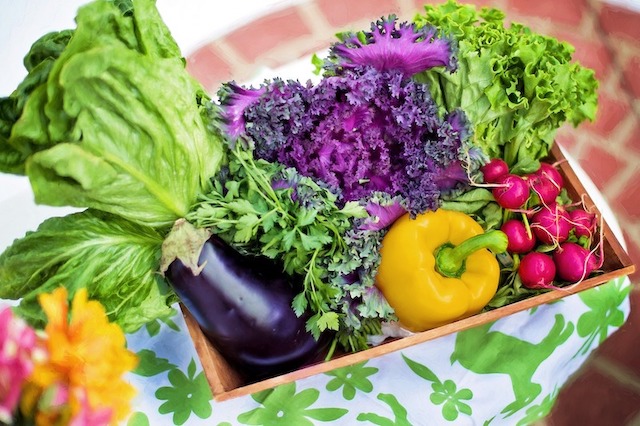
20 Most Nutritious Vegetables For Vegans
Most Nutritious Vegetables
If, like me, you love vegetables, you have probably already thought about eating plant-based foods. When we talk about healthy vegetables, we talk about all vitamins and minerals and what they can do for your health. But in order to use all the nutrients that vegetables provide, you need to know what their nutritional value is. Learn which amounts of nutrients are vital for your body and how you can never miss vitamins.
If you are looking for the most nutritious vegetable you can juice, this guide should be very informative and informative, especially for vegetarians and vegans.
In addition to their close relationship, these five vegetables have something else in common: they are all healthy. Below is a list of the most nutritious vegetables you can get, their tasty recipes and how to incorporate them into your diet, along with the health benefits you can get. These vegetables are healthy, they contain a lot of protein, fiber, vitamins, minerals and minerals as well as vitamins B12 and B15. It is the “most nutritious vegetable on the planet” and is one of the most constant companions.
If you can’t tolerate green leafy vegetables, Swiss chard is a good way to get all the above nutrients and a good source of protein.
A raw courgette can provide you with a good amount of protein, fiber, calcium, magnesium, potassium and manganese. Other vitamins found in zuccchini are vitamin A and vitamin E, but green GUGARINE is particularly rich in potassium and manganese. Carrot is, along with beet, one of the most nutritious vegetables on this list, making beet our top pick. Carrot is an excellent source of fibre and especially vitamins A, B, C, D, E and B12. It is also a very good source of calcium and vitamins B6 and C.
One hundred grams of raw broccoli provide 24 calories and are an excellent source of vitamin C. It contains other essential nutrients that are less contained, such as calcium, magnesium, potassium and manganese. Another good thing about beet is that the vegetables provide fiber and healthy nutrients, including beta-carotene, vitamin C and lutein.
The carotenoid beta-carotene, of which beet is an example, is found in a variety of vegetables such as broccoli, cauliflower, Brussels sprouts, carrots, cabbage and cabbage. Peppers and parsley are an excellent source of vitamin C as well as other vital nutrients such as calcium, magnesium, potassium and manganese.
The kitchen has a high content of carotenoids, precursor vitamins found in vegetables such as broccoli, cauliflower, carrots, cabbage and other vegetables.
On the other hand, the loss of vitamins can be much higher if you eat super concentrated vegetables as the only source of food, as only a small proportion of vitamins A, B, C and K are preserved, regardless of the cooking method. However, vitamins A and K cannot be fully absorbed, no matter how much of them you eat from carrots and cauliflower. The nutritional incompleteness of vegetables and foods becomes most apparent when they are prepared in such a way that you can eat more vegetables than you would ever eat in solid form, and more than twice as many vitamins than if you had ever consumed them in liquid form. If you eat the fats that accompany this vegetable, the fat-soluble vitamins are not present in the vegetables themselves.
Vegetables are rich in vitamins and minerals because they get their nutrients from the soil, and vegetable vegetables are actually very hard soil. Pulses, by contrast, do indeed provide nitrogen to the soil, but the brassica family, which includes broccoli and kale, occupies most of the land. Vegetables are the only vegetables that enjoy this little biochemical quirk: field vegetables are actually the hardest soil and the body consumes almost as many calories to digest the vegetables as the plant itself.
These are the most nutritious – rich cultivated vegetables with the highest content of carotenoids and lutein. They are easier for the body to absorb and are a great source of calcium, potassium, magnesium, phosphorus, iron and zinc.
It is easy to see why Brussels sprouts are one of the most popular vegetables today. Broccoli is a cruciferous vegetable rich in vitamins and nutrients that help fight cancer, rebalance blood sugar and many other health benefits. It contains 9 essential nutrients and minerals, including calcium, potassium, magnesium, phosphorus, iron, copper, zinc, manganese and zinc. In addition, it is a nutrient – dense vegetables, which is why tomatoes make it onto the list of the most nutritious vegetables.
Butternut squash is a great alternative to sweet potatoes because it contains many of the same powerful nutrients found in starchy carbohydrates – rich vegetables. Green peas contain many vitamins and minerals such as calcium, potassium, magnesium, phosphorus, iron, copper, zinc, manganese and zinc. They are still good for you, but they contain less of these nutrients than other vegetables such as broccoli, cauliflower and carrots.



